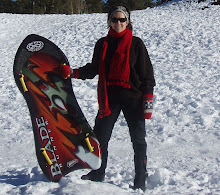RSS stands for Rich Summary Site or Really Simple Syndication; it is an XML format for sharing headlines and content from your favorite websites. “The name "RSS" is an umbrella term for a format that spans several different versions of at least two different (but parallel) formats” (Pilgrim, 2002, p. 1). The original .90 version by Netscape was formatted primarily for the sharing of news via portals. A simpler version followed (0.91) and was picked by UserLand software. UserLand continued to experiment with various forms of RSS until it evolved to 2.0.
Today RSS is not just for news. Anything that can be broken down and formatted can syndicate through RSS. Changing news or related information can be forwarded directly to you by RSS, thus saving the user from seeking this very information from individual web sites or blogs. RSS allows the user to keep up to date on new information from a variety of sources: sports, travel updates, latest YouTube videos or even new music on iTunes. These are only a few examples, if you are new to RSS visit “35 Ways to Use RSS” which gives plenty of useful feeds for RSS information you never knew existed, some are a little different. http://www.micropersuasion.com/2006/06/35_ways_you_can.html
When I started this RSS assignment, I had no idea what information to deliver to myself. Do I even need news updates? I read the Arizona Republic every day! Upon reading the blog, “35 Ways to Use RSS,” I found a RSS feed to NFL teams with links- perfect! I signed onto Google Reader because I already have Gmail and wouldn’t have to create yet another account. I had a little difficulty in determining how to get the feed to work but realized how easy it is when I found the subscribe button. Just click on the subscribe button on the lower left side of the home page, browse and locate RSS feeds that are compatible with Google Reader. I easily subscribed to news from USA Today, Greenbay Packers.com and The Arizona Cardinals. The Arizona Cardinals news is actually a blog. I want to experience updated blog information on the Cardinals and compare any content updates or differences between a blog and news websites. Now, I can sit back and let the news come directly to me, how simple.
References:
Introduction to RSS. (2003, April 14). Retrieved April 7, 2008, from https://myasucourses.asu.edu/webapps/portal/frameset.jsp?tab=courses&url=/bin/common/course.pl?course_id=_565287_1
Pilgrim, M.(2002, December 18). What is RSS? Retrieved April 8, 2008, from
http://www.xml.com/pub/a/2002/12/18/dive-into-xml.html
Rubel, S. (2006, June 19).Micropersuasion: 35 ways to use RSS. Retrieved April 8, 2008 from http://www.micropersuasion.com/2006/06/35_ways_you_can.html
Subscribe to:
Post Comments (Atom)

3 comments:
Exactly! And why don't more people know about RSS and how much easier and quicker it is when information comes to them?
And why aren't instructors recommending feeds and sites for students majoring in their discipline?
And why...
ok, I'll quit now.
Hi Marcy,
Your information was very detailed and helpful. I will return to the 35 ways to use RSS to use use RSS more. I love finding ways to save time on the computer! I am also surprised that more people do not know about and use RSS.
I also had a hard time finding things to add to RSS, but once i started i got on a bit of a roll with it. It's great for blogs.
Post a Comment